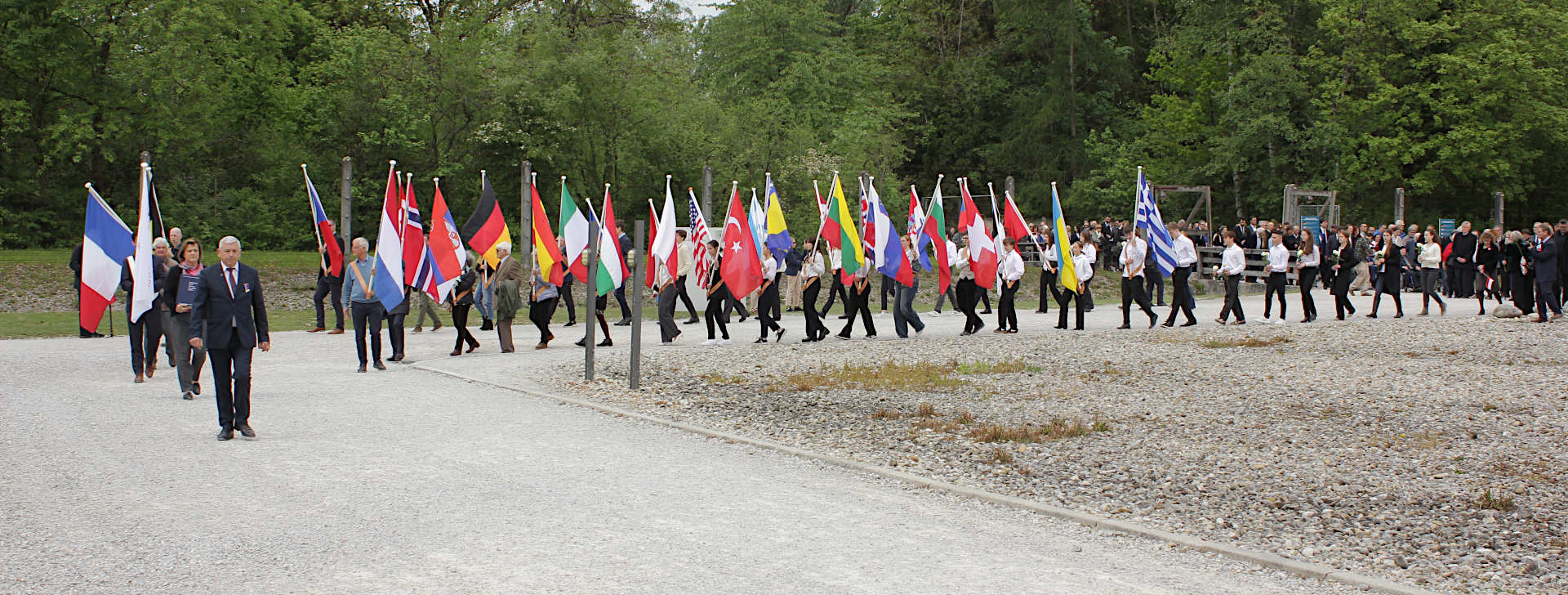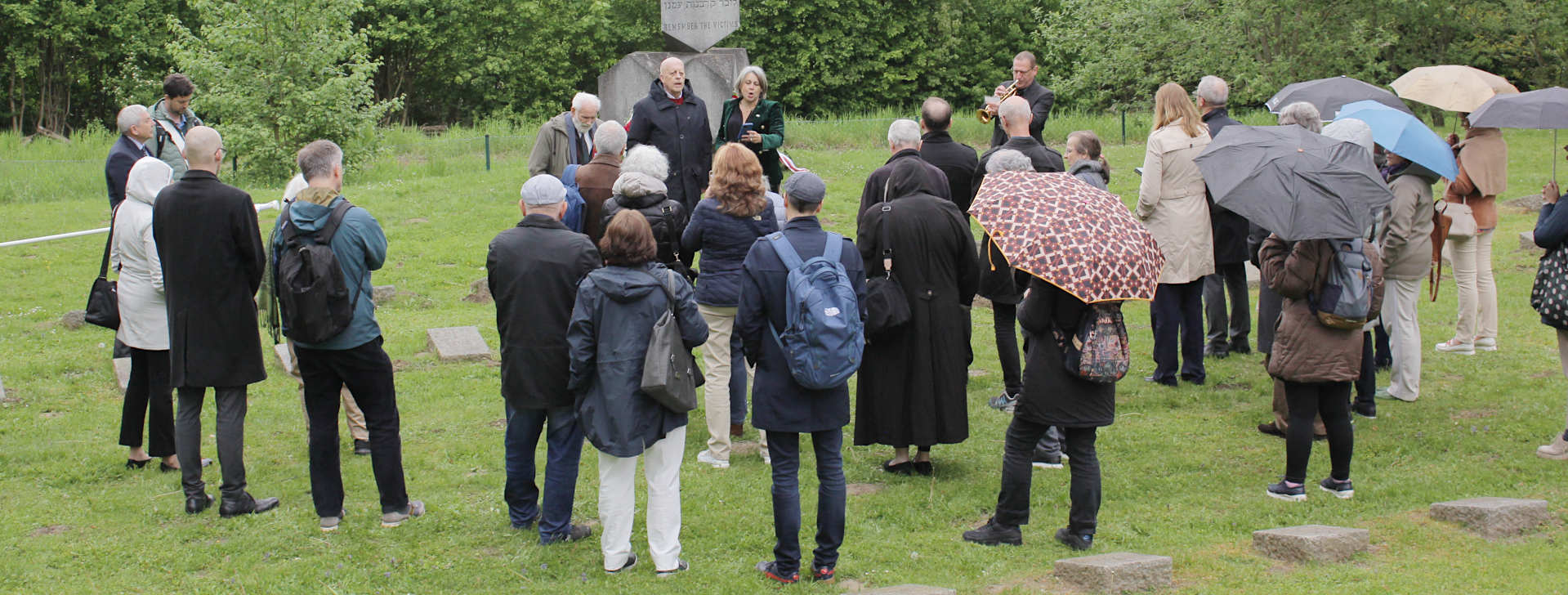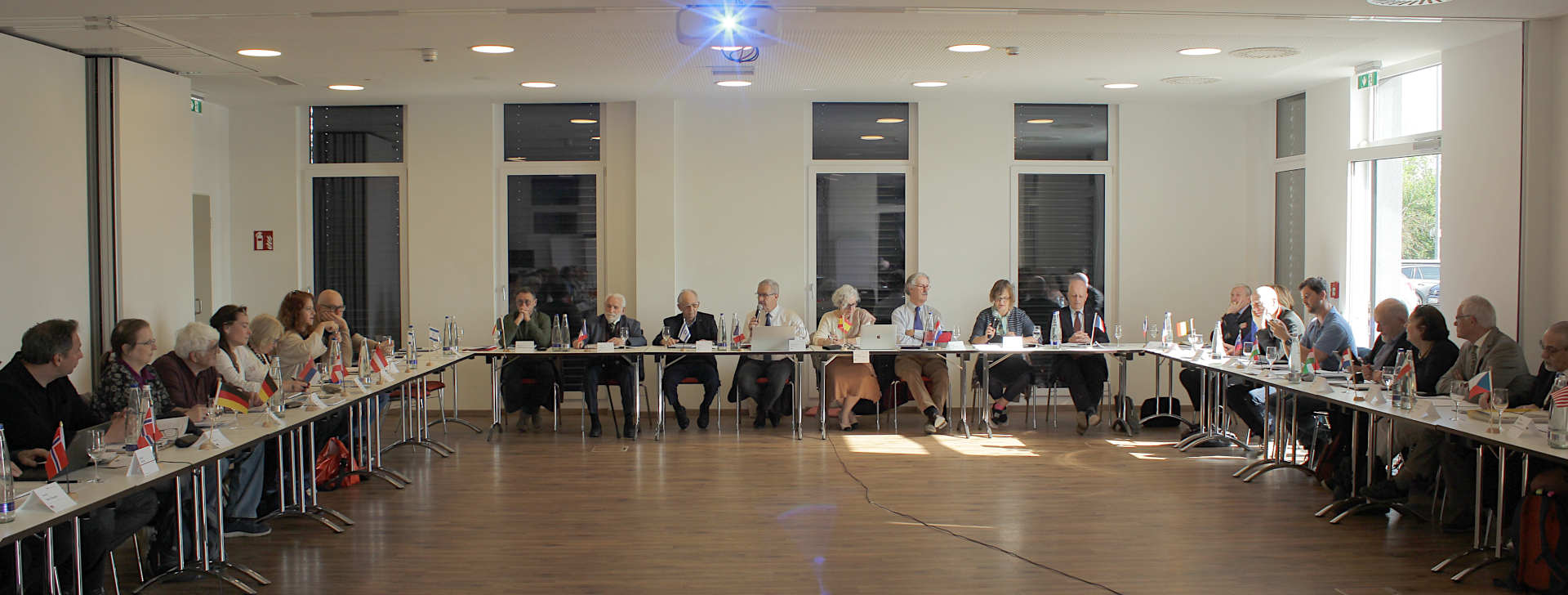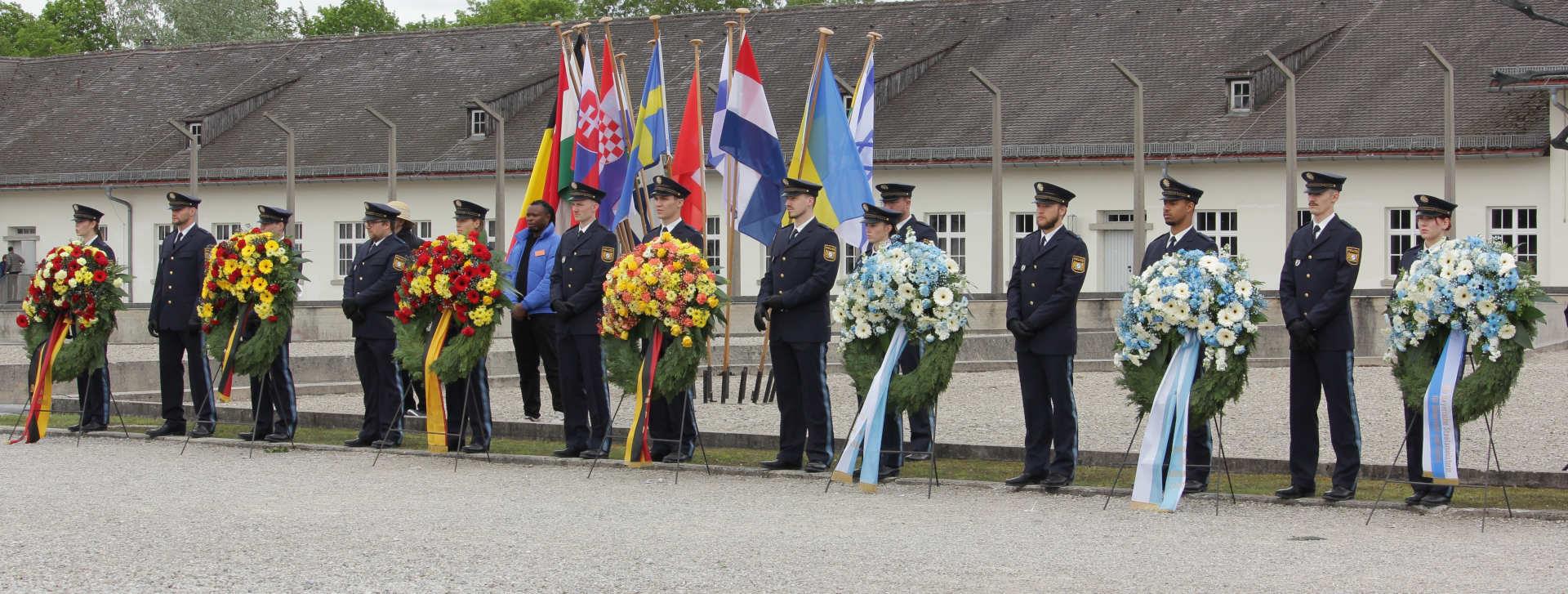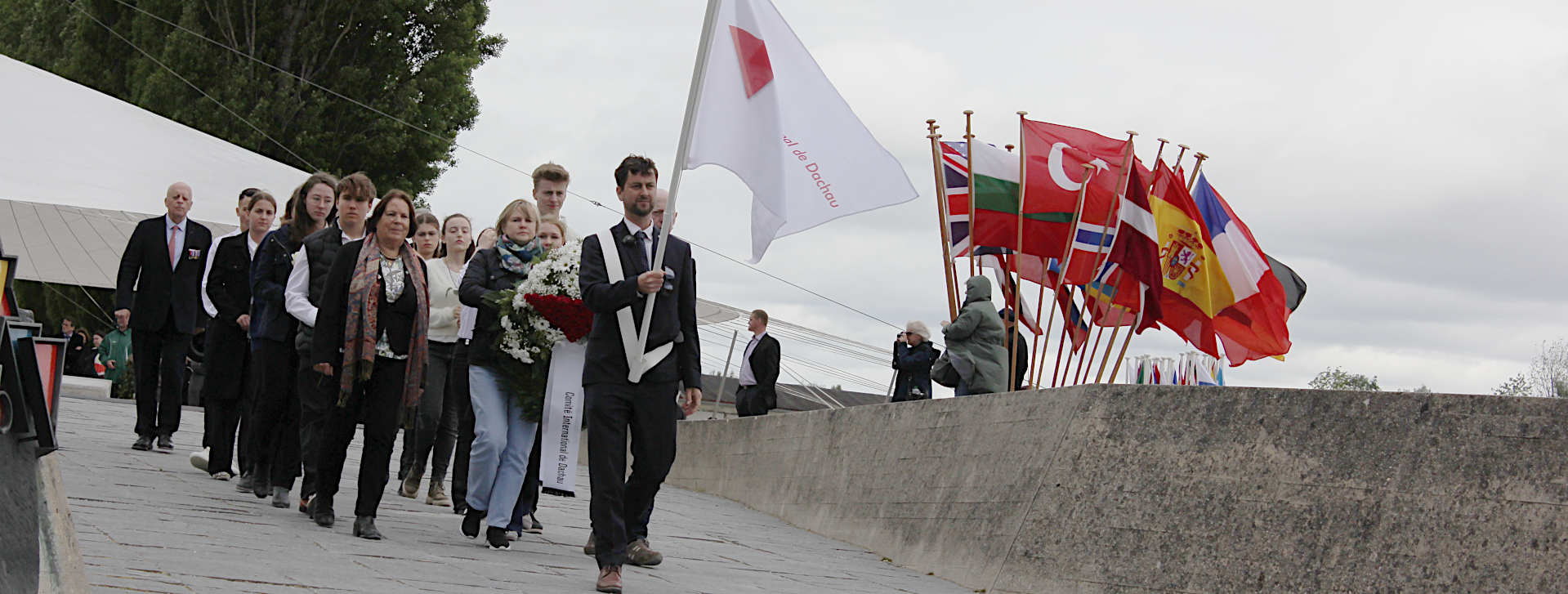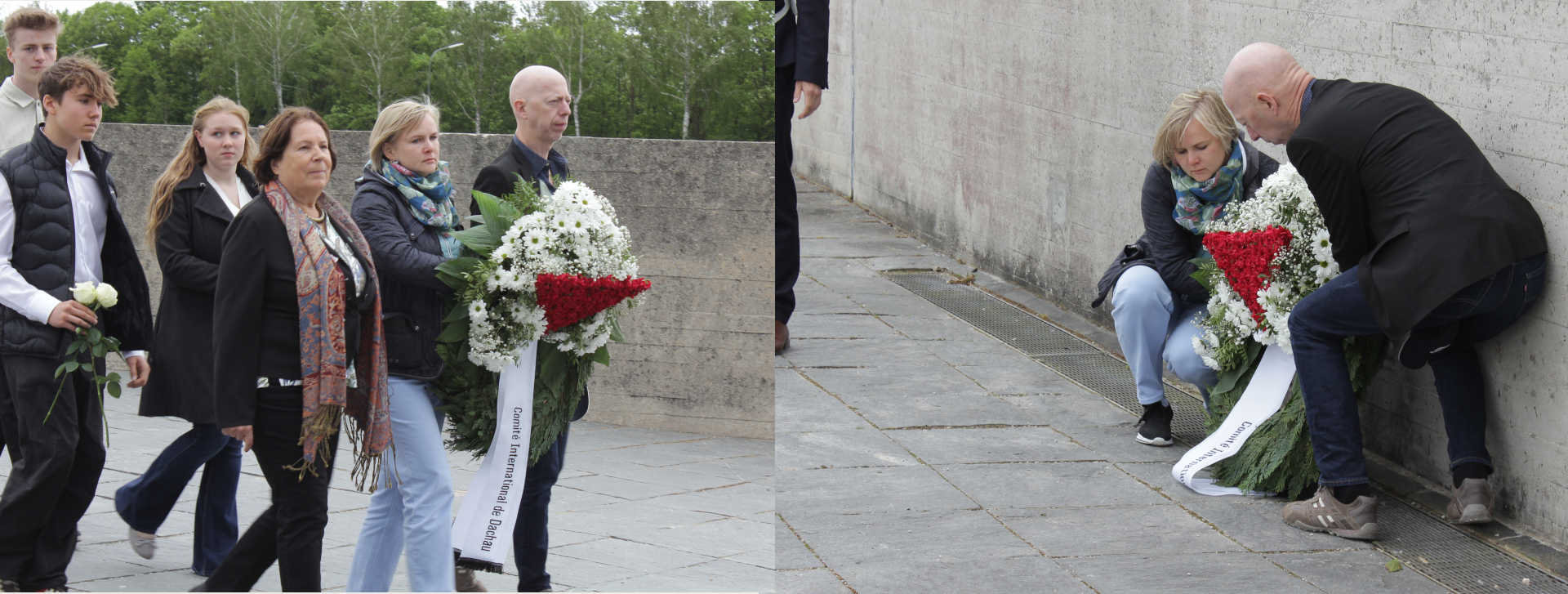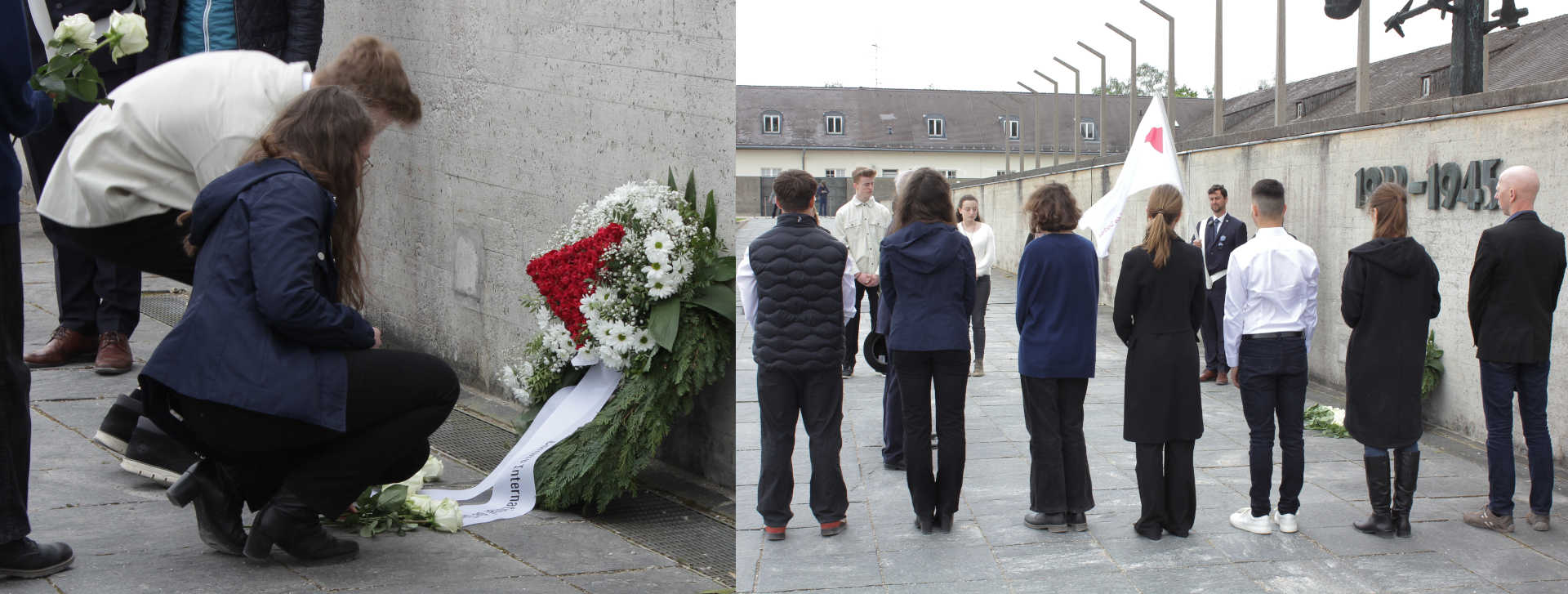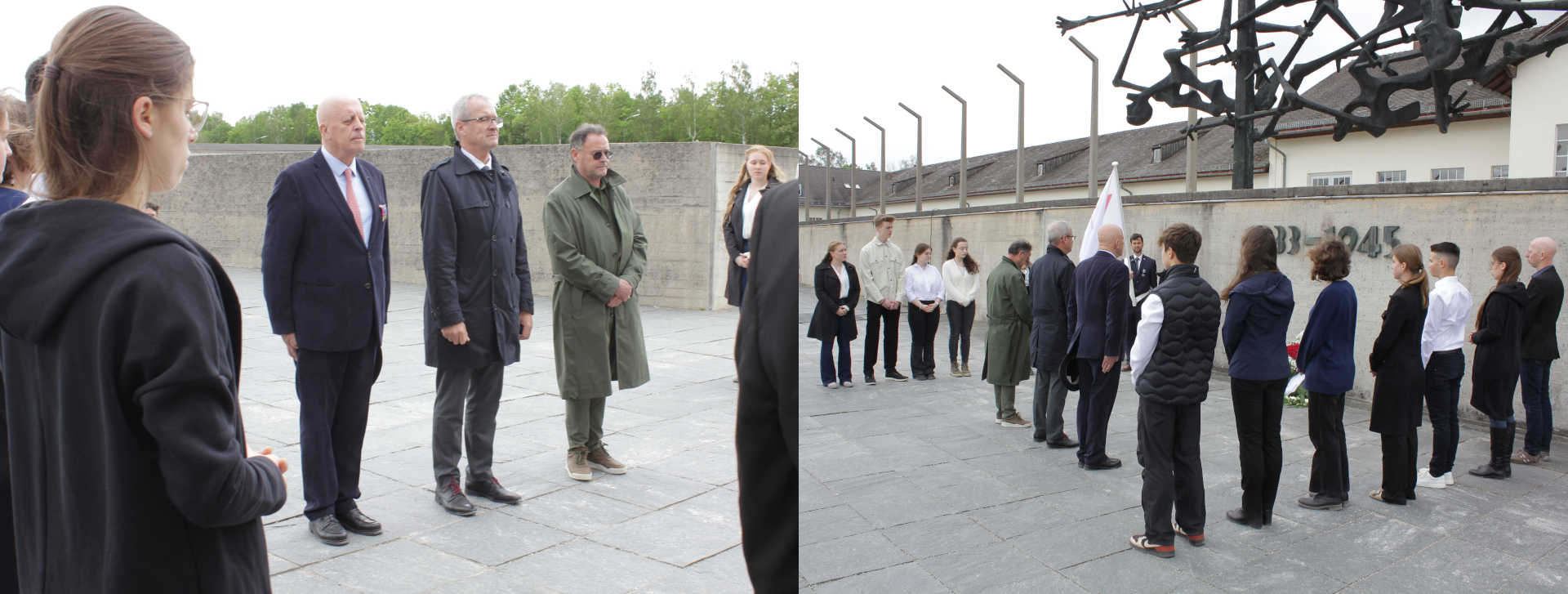Rotspanier And The International Brigadists
The transmission of their experience through the family narrative
The formation of the International Brigades was a response to the international call to defend the Spanish Republic against the advance of fascism. Volunteers from all over the world, inspired by ideals of international solidarity, united to fight in support of the republican cause, remaining in Spain from October 1936 until its dissolution on September 28, 1938, shortly before the end of the Spanish Civil War in 1939. A plaque dedicated to the Austrian brigade members in the memory room of the Dachau Memorial brings us closer to the reunion between the Spanish deportees and the brigade members. That reunion provided the Spaniards with invaluable help that accompanied them during the time they were deported; the language barrier was a great handicap against their perpetrators.
As president of the Spanish Association Amical Dachau, Cristina Cristóbal established a cooperation with the "Österreichischen KZ-Gemeinschaft Dachau" to jointly hold on June 5, 2024 at the Cervantes Institute in Munich the talk-colloquium: Rotspanier And The Brigadistas International Internations: The Transmission Of Your Experience Through The Family Narrative. This event focused on sharing and transmitting the different family narratives that brought us closer to the lives of three deportees to Dachau: Ferdinand Berger, Alois Peter and Fermín Cristóbal. Three lives with a parallel story that began in the Spanish War and ended with his deportation to Dachau.
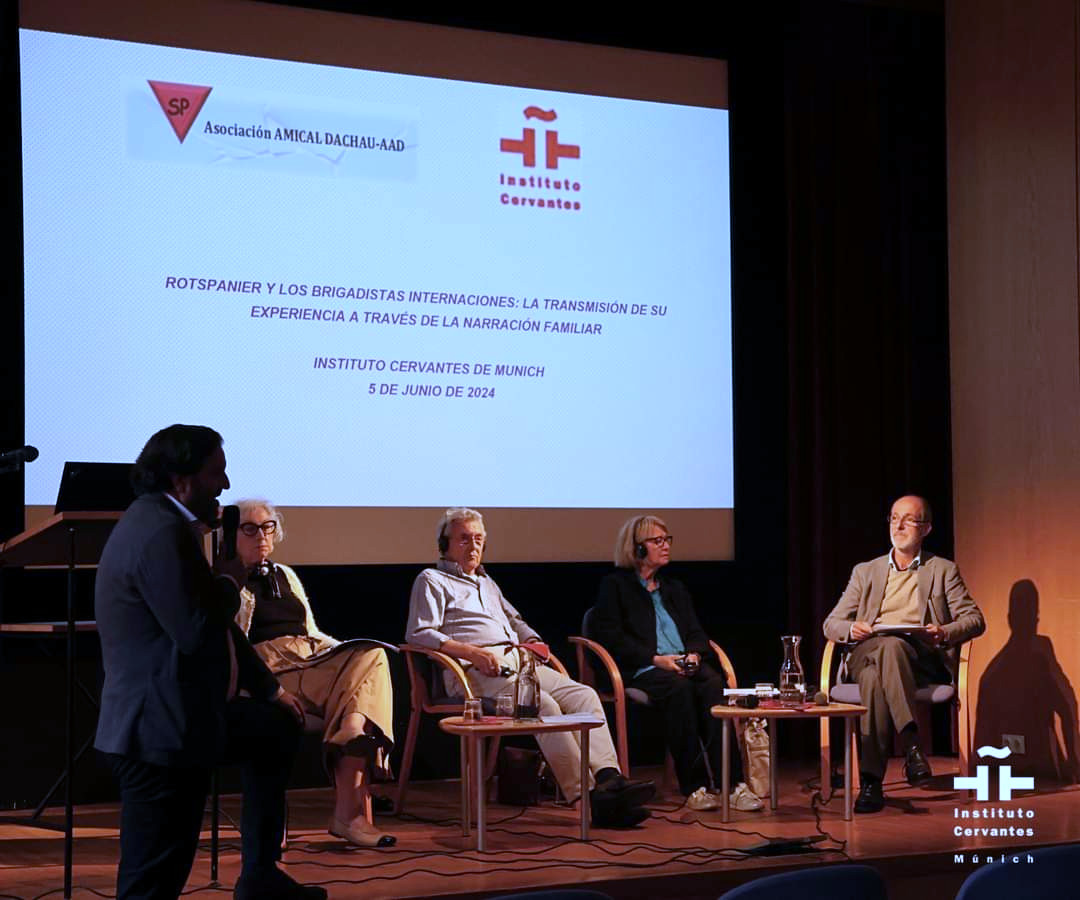 Felipe Santos,Cristina Cristóbal, Ernst berger, Eva Friedler, Carlos Collado Seidel Photo: Cervantes Institute Munich (2024)
Felipe Santos,Cristina Cristóbal, Ernst berger, Eva Friedler, Carlos Collado Seidel Photo: Cervantes Institute Munich (2024)
The event was introduced by the director of the Cervantes Institute in Munich, Mr. Felipe Santos, and Mrs. Cristina Cristóbal, Dr. Eva Friedler and Dr. Ernst Berger participated, with Professor Dr. Carlos Collado Seidel moderating the interventions and the discussion.
Cristina talked about her grandfather Fermín Cristóbal López presented photos of his family and his moving words created emotions in us...
…The fear of Forgetting and silence have been the driving force that has led me to search for my Memory, to get closer to the transmission of the family experience, to reflect on the Transmission of memory in the victims and to ask myself: in the different family narratives, How are they similar, ¿how are we different?
…In my family there was a silence… a silence full of voids, full of pain and unknowns in relation to the whereabouts of my grandfather, of whom it was only known that on July 19, 1936 he had to abandon his home, his family, his friends, his work..., some letters sent from the French internment camps and a certificate from the Red Cross that reported his death on February 8, 1945 in Dachau. Thus, I grew up among images, a presence of my grandfather floating in my imagination, and the fear of being retaliated against.
…My family transmitted to me with their way of living respect for others, the value of commitment, free thought, the love of reading, culture as a right…
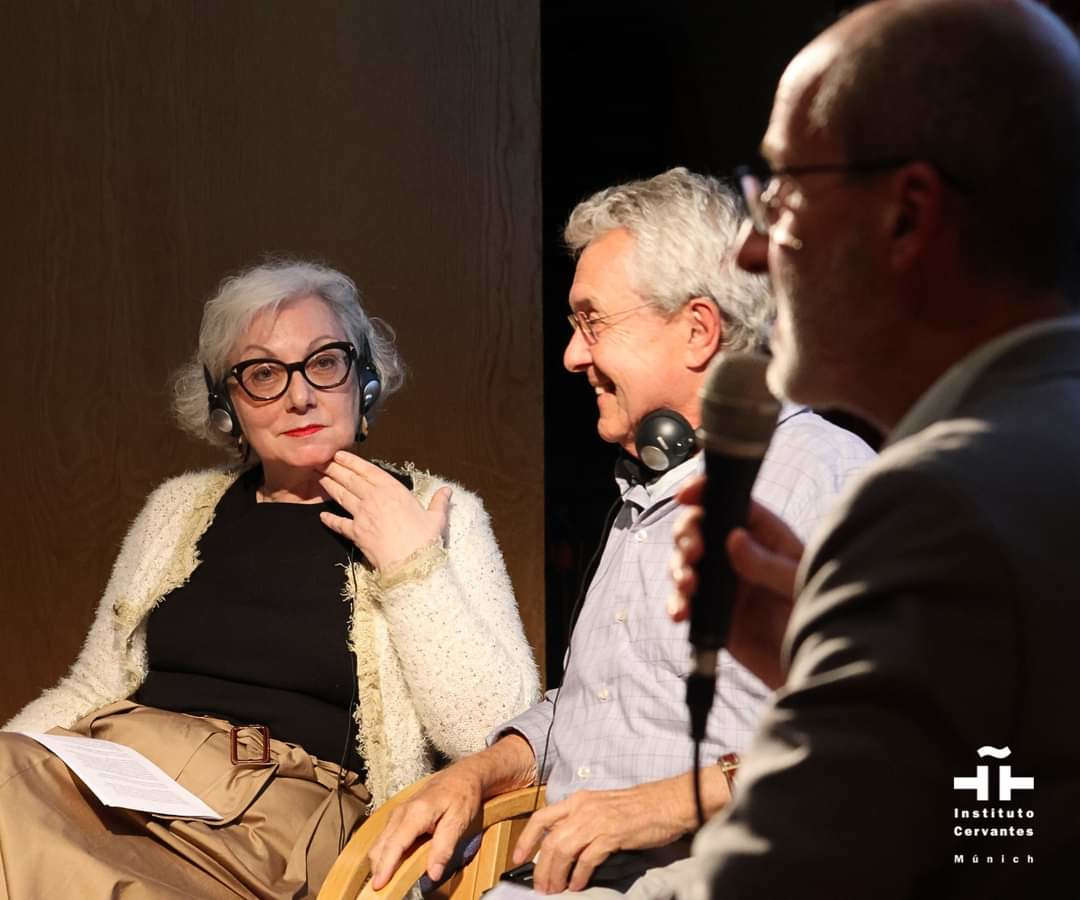 Cristina Cristóbal, Ernst Berger, Carlos Collado Seidel Photo: Cervantes Institute Munich (2024)
Cristina Cristóbal, Ernst Berger, Carlos Collado Seidel Photo: Cervantes Institute Munich (2024)
Ernst Berger and Eva Frielder established a dialogue in which they read various texts written by their parents that reflected their experiences as brigade members and the difficulties they had upon returning to their country after their liberation in 1945.
 Ernst Berger, Eva Friedler, Carlos Collado Seidel Photo: Eva Friedler
Ernst Berger, Eva Friedler, Carlos Collado Seidel Photo: Eva Friedler
Ernst Berger began with the words of his father Ferdinand Berger: “Solidarity is one of the main weapons in the fight for the liberation of the working class. “This country gave the opportunity to put international solidarity into practice and thus became a great school of the proletariat.”
 Second from left Ferdinand Berger (Photo Spanish Archive of the DÖW)
Second from left Ferdinand Berger (Photo Spanish Archive of the DÖW)
In an interview, Ferdinand Berger reported on his deployment as an Interbrigadist: ‘I came to Valencia for my first deployment and was assigned to the Dimitroff anti-aircraft battery. The battery was in an orange grove and I ate fresh oranges from the tree for the first time in my life. The next morning we travelled to Barcelona and were stationed on Montjuic. ... A large number of Italian bombers attacked us and I heard the whistle of falling bombs for the first time ... The next deployment location was near Teruel for 10 days and then back to the Mediterranean, where the front could no longer be held against Franco's troops. ... That was around April 1938. About two months later we were taken by ship from Valencia to Barcelona and demobilised. From there we walked to the French border without weapons. When we crossed the border into France a few days later, André Marty predicted that not only we but also our children would be persecuted for our fight in Spain.’
Eva Friedler spoke about statements she had made to her father Alois Peter in an interview in 1998. In them she described Dachau in relation to the Spanish-Austrian fighters as follows: “We had a good reputation in the field: also with the SS; no matter how funny it is. "Thieves! “You shot our comrades.”
And then there were some who said “Wait, good soldiers!” “You didn't embarrass us Germans.” This line prevailed. Anyway, we were respected as good soldiers. And we also stayed together in the camp.
 Alois PETER: 2nd row; first from left in the Gurs camp Spanish archives of the DÖW
Alois PETER: 2nd row; first from left in the Gurs camp Spanish archives of the DÖW
Nach dem Ende des spanischen Krieges wurde er in verschiedenen südfranzösischen Lagern inhaftiert.
Von dem Lager LE Vernet kam er dann ins KZ- Dachau, wo er die Befreiung erlebte!
1998 in einem Interview von Stepanek Friedrich (Fachbereichsarbeit aus Geschichte und Sozialkund am Akademischen Gymnasium Innsbruck) wollte mein Vater über die Kämpfe in Spanien nichts sagen. “Aber übers Schlachten, übers Schießen und Töten will ich nicht reden.” Das Schweigen, nicht reden war in meiner Familie die hervorherrschende Kommunikation! Erst meiner Tochter, seiner Enkelin konnte mein Vater mehr erzählen! Mit ihr fand auch der erste Besuch in Dachau statt.
Er betonte den Zusammenhalt der österreichisch -spanischen Interbrigadisten in Dachau „Wir hatten einen guten Ruf im Feld und auch bei der SS;.. Jedenfalls wurden wir als gute Soldaten respektiert. Und wir blieben auch zusammen im Lager.”
Transmitting the Memory is an opportunity to make current generations aware of the ignominious moments of our recent European history to prevent their repetition and to carry out collaborative experiences between the members of the International Committee of Dachau-CID.
It is an act of tribute to all the people who were victims of deportation to the Nazi concentration and extermination camps.
Cristina Cristobal, Eva Friedler, Ernst Berger




